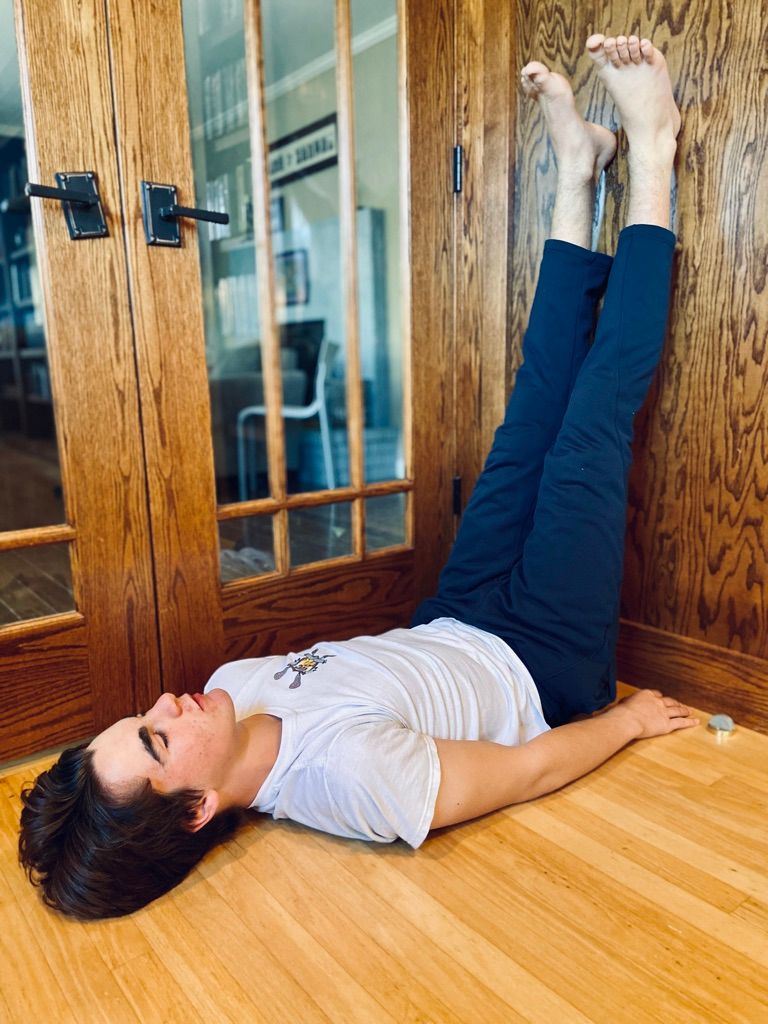The Brick On My Chest

Anxiety and other unpleasant emotions in a time of crisis.
Since I’ve been sheltering in place, I wake up some mornings feeling as if there’s a brick on my chest, agitated and ruminating on my worries. For me, the physical feelings and whirling and pessimistic thoughts are classic symptoms of anxiety.* And why wouldn’t I have anxiety? After all, we’re in the midst of a pandemic and the headlines shout DANGER! DOOM! DISASTER! all day long.
Recently, Dr. Marc Brackett, Oji co-founder and Director of the Yale Center of Emotional Intelligence, conducted a survey with 5000 teachers in North America asking, what is the most common emotion you are experiencing right now? The #1 answer was: (wait for it) anxiety. The reasons they gave undoubtedly have passed through your own mind: What if I get sick? What if someone in my family gets sick? How can I manage my kids' schooling and my own workload? If we don’t learn to regulate these and other ruminating thoughts, we’ll experience physical side effects, which include, headaches, stomach issues and back pain. Mental side effects, including depression, impact relationships, decision-making and our general ability to function.
Seemingly overnight, our lives have been upended by COVID-19. Now, our emotions are amplified and the impact to our mental and physical well-being are more noticeable. If we thought regular life was an emotional roller coaster before, the Corona Coaster might qualify as one the world’s craziest and scariest rides.
Do you feel shut down and sad? Irritable and frustrated? Scared and restless? All of the above? They’re all normal responses to our very un-normal circumstances. A friend told me, “I cry every day now. Sometimes, I don’t even know why I’m crying. But, when I’m done, I feel a little bit better.”
I hear it from our clients, too. A financial services executive reflected on how his temper unexpectedly flares more often. “Things that used to not bother me now make me so angry. My fuse is really short these days.” A talent acquisition manager shared, “I notice that I get panicked now about little things, and when my partner doesn’t share my urgency, I feel anger on top of my anxiety.”
Why are we feeling anxious? At its root, anxiety is about worry and unease about future uncertainty and our inability to control outcomes. It certainly doesn’t operate on logic and, if you're like me, you'll find yourself worrying about things that seemed minor before. A program director recently told me, "I keep waking up and worrying about the dumbest things. Last night, I worried about the expiration date on the ground beef in the refrigerator and if I could still cook it for dinner."
A corporate vice president recently shared, “I know that right now, I’m ok. I have my job and a roof over my head, but I still feel out of sorts and worried all of the time. I feel like I should be ok, but I don’t feel ok.” Here, the individual is adding a "should" to the mental monologue, layering guilt and shame onto the worry she was already experiencing. What a cocktail of misery!
If any of these sentiments feel familiar, take heart. These days, it's perfectly reasonable to feel a wide range of emotions. Rather than judging your emotions, I encourage you to try and view your feelings as information. When you name what you are feeling, you are practicing the first skill of emotional intelligence: recognition. By saying to yourself, "I feel really anxious right now," you have positioned yourself to do something about it: you can shift to a different emotion, which is the second skill to master: regulation. These are the two key levers you can use to process and shift your experience to achieve a better outcome.
Practice recognition and regulation by completing the following statements:
- Right now, I feel: _______
- Feeling this way is helpful to what I'm doing: yes/no
- If the answer is no, answer this: I would like to feel ______ instead.
- To get to the desired emotion, I can [insert a strategy here].
Strategies are activities that help you to regulate your emotions. They might include a change in thinking or a change to your body or environment. According to Marc Brackett, the goal of a regulation strategy is to prevent, reduce, initiate, maintain or enhance emotions in order to enhance well-being, build positive relationships, make sound decisions and attain goals.
Need some regulation hints? Below, are some strategies you can use to shift your mood when you are feeling worried or anxious:
- Breathe. I know, everyone says this, but that’s because it really works. Try it right now: take a satisfying inhale and exhale completely. Now try that again and add a slight pause before you exhale. One more time, this time adding an additional pause after the exhale. Repeat two more times, with brief pauses between the inhales and exhales. How do you feel? Simple breath work like this has been proven to calm the nervous system - and all it took was a minute of your time.
- Lay on the floor and put your legs up the wall. It’s a simple, yet remarkably restoring yoga pose that’s nice on the spine and good for circulation. My son demonstrates it here. By the way, as he patiently waited for me to take the picture, he said, "This really does make your back feel better!"

3. Get some fresh air. Whether that means standing next to an open window, or going outside, take a few minutes to listen to the birds and feel a little spring sun on your shoulders. While you're outside, play a game with yourself to see how many distinct sounds you can hear and name, or how many colors you can spot. Our brains are wired to look for novelty, which is why changing your focus like this can be helpful to shifting your mood. The vitamin D from sunshine and the temporary distraction of listening and looking can quiet a bout of anxiety.
4. Change the narrative. Pay attention to the “story” of your thoughts and look for ways to reframe it. For example, a project manager I know recently applied for a job. Three days after the interview, he still had received no word. His self-talk sounded something like: “So clearly I didn’t get the job because if I did, I would have heard from them by now.” When he realized that this narrative caused him distress, he shifted it by talking to himself in 3rd person: “You’ve applied to jobs before and it always takes more time than you think it should - even when it was you that got the job. So, don’t jump to conclusions - you know that you’re a good candidate for this. Let’s see what happens tomorrow.”
5. Ask for help. If you’re really underwater and find yourself experiencing intensely unpleasant emotions for the majority of your day, then it’s time to call in support. Taking care of your emotional needs is not a luxury - it's a necessity. That's always been true, but now more than ever. It might be as simple as calling a good friend or family member. Or, seek out a therapist. While we continue to shelter in place, look for virtual counseling options. You might find someone through your healthcare provider or a growing number of apps and services you can find online. A recent NY Times article on managing panic attacks offered this resource as a place to search for therapeutic support as well.
So, when I wake up with that brick on my chest, I’ve learned to acknowledge that it’s there and to start working my strategies. Sometimes, I feel better right away. Other times, I only know that they’re working because the anxiety is absent the next morning.
Regulation strategies are like a prescription. You can’t just read the label on the pill bottle to get the benefit - you actually have to take the medicine! When you experience anxiety, you can do more than just wait for it to pass. You can use a strategy to calm your nervous system and change your thinking so that you can shift your mood. It takes practice, and one strategy won't work in all situations. You'll need several in your repertoire for different circumstances.
If you’d like more emotion regulation strategies and ideas, check out our Corona Care Kit. We created an ebook to help you navigate the emotional realities of living through a pandemic. It's free and we hope you can take advantage of it.
*Pressure in the chest, dizziness and shortness of breath can also be symptoms of a heart attack. If you experience these symptoms and have not been evaluated by a doctor, please get checked out.
Latest Posts
BACK TO HOME ❯ Developing New Managers? How to Set Them Up for Success
Developing New Managers? How to Set Them Up for Success
 First-time Managers Are Holding Back Employees & Performance
First-time Managers Are Holding Back Employees & Performance
 Why New Managers Fail and How Oji Foundations is Revitalizing Leadership Training
Why New Managers Fail and How Oji Foundations is Revitalizing Leadership Training
Sign up for our People-Powered Newsletter.
